Who I’m Following To Better Understand Israel Today
Here’s a sampling of first-rate thought leaders worth checking out.
Many of us these days are hungry for information, analysis and, at times, inspiration, as we follow the events of the Israel-Hamas war and the military, political and moral dilemmas it presents. One of the great challenges we face is getting beyond our own biases in seeking out other points of view. It’s not easy because we have become conditioned to living in our own echo chambers.
In a lucid and enlightening essay in the current issue of Sapir: A Quarterly Journal of Ideas for a Thriving Jewish Future, sponsored by the Maimonides Foundation, Micah Goodman, perhaps Israel’s most relevant and readable philosopher, explains how digital technology, for all of its gifts, has succeeded in feeding us ideas and pieces of information that are already our own.
“The great trade that humanity has made for digital technology,” he writes in “The Talmudic Cure For Our Technology Sickness,” is that the technology has weakened our ability “to listen to ideas with which we disagree.” (Goodman offers the Talmud, with its endless debates, as a model for “radical listening” in which we judge the other person’s argument based on their premises, not necessarily our own.)
Inspired in part by Goodman’s essay, and with suggestions from a few trusted colleagues, I offer up a short list – in alphabetical order – of people whose work I seek out to better understand this momentous and frightening time in modern Jewish history.
Matti Friedman
Matti Friedman is a Canadian-born Israeli journalist and author whose experience as a 19-year-old Israeli soldier in Lebanon, toward the end of Israel’s 18-year military presence in the country, had a profound impact on him. He came to realize that for all of Israel’s Start-Up Nation qualities, it could fall victim to the kind of rival factions within society that made once-sophisticated Lebanon a battleground. Friedman’s observations led to his award-winning 2016 book, “Pumpkinflowers,” part memoir and part reportage, describing the nature of unwinnable conflicts Israel has faced since the Yom Kippur War 50 years ago.
Friedman’s latest book, “Who By Fire: Leonard Cohen in the Sinai,” describes the iconic singer’s concert tour on the front lines of that 1973 war and the powerful impact it had on him and the hundreds of soldiers he met.
Friedman’s thoughtful analyses in The Atlantic, The New York Times, Tablet, and other publications are always insightful. His journalism career included a stint at the Associated Press in Israel, which prompted a powerful essay, “An Insider’s Guide to the Most Important Story on Earth” (Tablet magazine, 2014), a stinging critique of mainstream media’s “hostile obsession with Jews” that is all-too relevant today.
Daniel Gordis
Daniel Gordis, long known as a leading American-born Israeli author and lecturer, has provided invaluable information and insights into Israeli society, particularly since Oct. 7, via his Substack newsletter, Israel From The Inside.
Whether he dissects the front-page stories of a Hebrew-language Israeli daily, offers podcasts and/or video interviews with a variety of Israeli thought leaders, or posts his own essays, Gordis provides diaspora audiences with content that often inspires in describing the faith and fortitude of Israeli society in these dark days.
An author of several books on Israel, his latest, published earlier this year, is “Impossible Takes Longer,” on Israel’s first 75 years.
Yossi Klein Halevi
Yossi Klein Halevi, an American-Israeli award-winning journalist and author, is that rare individual who strives to present both (or more) sides of issues related to the Mideast conflict through his passionate but balanced writing, teaching and activism.
In addition to his participation in “For Heaven’s Sake,” a Shalom Hartman Institute podcast with SHI president Donniel Hartman on aspects of the war, Klein Halevi of late has written a number of powerful, insightful essays on the current conflict in The Times of Israel, the Wall Street Journal and other publications.
One of the most powerful pieces, featured in The Times of Israel (Nov. 17), is “The Lonely People of History.”
Haviv Rettig Gur
Haviv Rettig Gur has emerged as one of the sharpest and most well-sourced journalists in Israeli media. The political correspondent and senior analyst for The Times of Israel lived in the U.S. for ten years as a youngster and has a keen understanding of the differences and tensions between the two societies, particularly regarding Jewish identity.
He also takes deep dives into issues others ignore, like a fascinating, well-researched piece he wrote in July explaining why much of the anger and violence displayed by Palestinians in the West Bank is due to “pure bureaucratic incompetence” on the part of the Palestinian Authority and Israel in failing to provide basic needs for living, like adequate electricity and sewage treatment.
Rettig Gur writes that “Israel … has a hand in the PA’s imminent death through a thousand petty oversights whose sum total is a real and measurable constriction of ordinary Palestinians’ lives and well-being. This is the deeper reality behind the Israeli army’s surprising inability to stop extremist Israeli violence. Its essence isn’t ideological but bureaucratic. The Israeli rule in the West Bank isn’t just bad at reining in lawless Israelis; it’s bad at nearly everything else, too.”
In a piece he wrote the day after the Hamas pogrom, Rettig Gur observed: “A strong Israel may tolerate a belligerent Hamas on its border; a weaker one cannot. A safe Israel can spend much time and resources worrying about the humanitarian fallout from a Gaza ground war; a more vulnerable Israel cannot. A wounded, weakened Israel is a fiercer Israel… too vulnerable and weak to respond with the old restraint.”
Michael Koplow
Michael Koplow combines the breadth of knowledge of an academic (he has a Ph.D. in government from Georgetown) and the fresh writing style of a creative author in producing his weekly Koplow Column for Israel Policy Forum, where he serves as a senior research fellow and chief policy officer. The column is a must-read for those on the left and the right, whether or not you agree with Koplow’s left of center views, because of his piercing analysis of Israel and U.S. policies and the Israel-diaspora relationship.
He can write with nuance in approaching a delicate issue, like suggesting it is time to “bypass” the debate about whether anti-Semitism and anti-Zionism are the same, and focus instead on pointing out that examples of either must be called out and stopped. And Koplow can be remarkably blunt, as in a recent piece, “The Most Irresponsible Man in Israel,” calling out Israeli Finance Minister Bezalel Smotrich for “playing politics with Israel’s budget in the midst of a crisis” and jeopardizing the Biden administration’s support by seeking to play out his expansionist dreams in a volatile West Bank. “If the day comes in the not-too-distant future when U.S. assistance to Israel is drastically curtailed, comes with new sets of restrictions and conditions, or is the subject of suspensions and investigations, Israelis can thank Smotrich, the godfather of not only looking a gift horse in the mouth but shooting it in the face.”
Yair Rosenberg
Yair Rosenberg has covered a great deal of journalistic ground since beginning his career at Tablet in 2012, moving on two years ago to The Atlantic, where he created and writes a newsletter called Deep Shtetl, covering politics, religion, technology and culture. Along the way he has gained a reputation as an expert in explaining and analyzing anti-Semitism – which he defines, basically, as “treating Jews differently” – particularly in social media. In 2016, the ADL found that Rosenberg was the second-most targeted Jewish journalist receiving online abuse, in part because of his public criticism of Donald Trump. He created a video series on “Why Anti-Semitism Is Still Around” for Unpacked, an educational non-profit, and he is a frequent, fast-talking guest on mainstream media.
(A spirited debate earlier this year between Rosenberg and popular conservative political commentator Ben Shapiro on anti-Semitism is available on YouTube and may best be appreciated by running it at half speed.)
Rosenberg often uses sarcasm to make his point, like the recent piece he wrote in The Atlantic entitled “How To Be Anti-Semitic and Get Away With It.” His suggestions include becoming too big to fail, like Elon Musk; “don’t say the quiet part out loud,” like Tucker Carlson repeating an anti-Semitic conspiracy theory about “them” without using the word “Jew”; and replacing “Jew” with “Zionist.”
Noa Tishby
Noa Tishby has a CV with a mind-boggling range of successes. The former Israeli and Hollywood star actress has been a best-selling author (with a book about modern Israel), the Jerusalem government’s special envoy for combating anti-Semitism, and most recently has become a powerful presence on American college campuses, television and social media making Israel’s case during the Israel-Hamas war.
“When a massacre occurs that is more barbaric than the world had seen in generations, people actually say, ‘Well, but Israel kind of deserves that,’” she observes, asserting such statements are proof that anti-Zionism is anti-Semitism.
A New York Times profile of Tishby last month noted: “In social media videos and in interviews, Ms. Tishby speaks with the ease of a veteran broadcast anchor, the self-certainty of a politician who has honed her talking points and the passion of an activist who is willing to reveal her emotions but not give in to them.”
Her Instagram account, with more than 670,000 followers can be found HERE.
Jonathan Tobin
Jonathan Tobin is editor-in-chief of the Jewish News Syndicate (JNS.org), a politcally conservative wire service, and has edited and written for a wide range of Jewish and secular publications, including the Philadelphia Jewish Exponent, Commentary, The Federalist, Newsweek and Israel Hayom. He is widely viewed as an important voice on the Jewish right and often sought out to appear on television and for other interviews. In addition, he has toured the U.S. with J.J. Goldberg, former editor of The Forward, debating political and Jewish issues.
As an example of Tobin’s crisp insights, a recent column of his noted that some mainstream media seemed more upset by Israel releasing photos of presumed Hamas terrorists, stripped-down down to their underpants, than reports on the slaughter and rape of Israeli innocents. “Are such images humiliating for those in the pictures? Of course,” he wrote. “But if you’re angry about the wounded pride of members of a barbaric terrorist group, then maybe you’re the one who has no moral compass, not the Israelis.”
Bari Weiss
Bari Weiss, whose public efforts to call out institutional bias against Israel in Ivy League colleges goes back to her student days two decades ago at Columbia University, has become a media phenomenon through the success of her presence on Substack.
After stints at Tablet, The Wall Street Journal and The New York Times, where her resignation letter asserting that the paper pushed a progressive ideology became her best-known piece of writing, Weiss created a media company, The Free Press, a year ago. It seeks to counter the mainstream liberal media through sharp opinion, analysis and investigative content from a range of writers, including Weiss’s wife, Nellie Bowles, who offers up a cheeky weekly column, TGIF, on Fridays.
The Free Press has hundreds of thousands of subscribers. Weiss also hosts a podcast, Honestly, on timely events, often with headline-makers.
A must-listen-to segment for those interested in Weiss’s views on “the fight for the West” is a lecture she was invited to give to the Federalist Society’s National Lawyers Convention last month, entitled: “You Are The Last Line of Defense.”
Einat Wilf
Einat Wilf is a former Labor member of the Knesset who has served as an intelligence officer in the IDF, foreign policy advisor to Shimon Peres and strategic consultant with McKinsey and Company. She is a leading voice on foreign policy and issues in Israeli society. With an undergraduate degree from Harvard and a PhD from Cambridge University, Wilf has written several books and many essays, and appears in numerous videos, offering original perspectives in a forthright manner explaining the history and complexities of modern Zionism and making clear to the Palestinians that “there will be no right of return.
She has a large audience of followers on Instagram, and her website with her bio, articles, media appearances, etc. can be found HERE.
A Sampling of Webinars and Podcasts
JPPI’s Israel At War: Inside Analysis.
The Jerusalem-based think tank, the Jewish People Policy Institute, offers a 30-minute webinar Monday through Thursday at 11 am ET, hosted by Yaakov Katz, former editor of The Jerusalem Post, and featuring a range of experts affiliated with the institute discussing timely issues related to the war.
The Times of Israel’s Daily Briefing.
A 15-minute update on news of Israel and the Jewish world, Sunday through Thursday, reported by TOI’s correspondents.
The Center for Israel Education weekly webinar
Kenneth Stein, emeritus professor of Israel Studies at Emory University and founding president of the center, interviews experts on Israel issues each Wednesday at noon ET.
Shalom Hartman Institute president Donniel Hartman and Hartman fellow Yossi Klein Halevi have tailored their award-winning podcast to present 20-minute daily weekday conversations between them on the moral challenges presented by the war. Their discussions get to the heart of the issues, often emotionally, and they manage to disagree at times without ever losing their respect and affection for each other.
INSS (the Institute for National Security Studies) podcasts and videos
Academic experts from Tel Aviv University discuss strategic policy issues related to the Israel-Hamas war.
Yehuda Kurtzer, the hyper-articulate co-president of the Shalom Hartman Institute, is in search of “big ideas” impacting on Jewish life. His interviews with a range of experts are always engaging and enlightening.
And don’t miss …
The Ezra Klein Show episode with Rabbi Sharon Brous
The New York Times columnist and podcast host has devoted several shows to various aspects of the Israel-Hamas war with Israeli and Palestinian guests. I found the Nov. 17 show, “The Sermons I Need To Hear Right Now,” between the progressive Jewish journalist and progressive rabbi of Ikar congregation in Los Angeles to be particularly moving, whatever your politics.
Real Time with Bill Maher on “From the River to the Sea”
On his last show of the season, last Friday night, the comic host unloaded in his eight-minute monologue on anti-Israel critics, asserting that Palestinians should “get used to” the reality that Israelis are not leaving. “No one knows more about being pushed off land than the Jews, including being almost wholly kicked out of every Arab country they once lived in,” Maher said. “Yes, TikTok fans: ethnic cleansing happened both ways.”
Dear Reader,
If you’re still here, thanks for reading all the way through.
I welcome your feedback and suggestions on who you follow for information on Israel these days and who is not on this list. Please share with me so I can share with fellow subscribers.
Thank you.

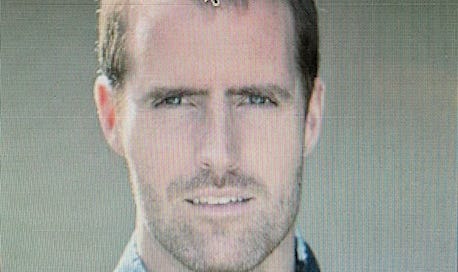




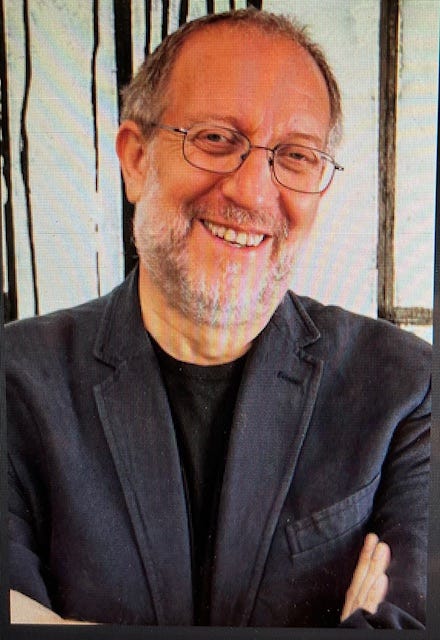
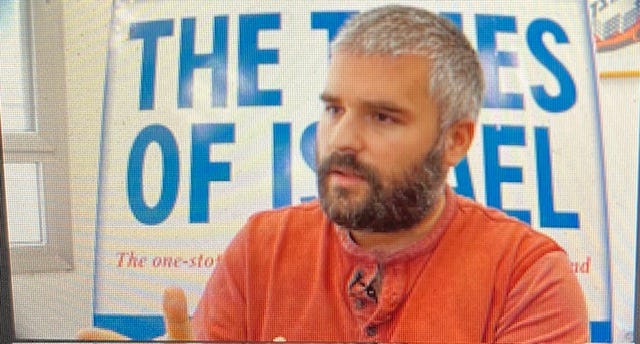
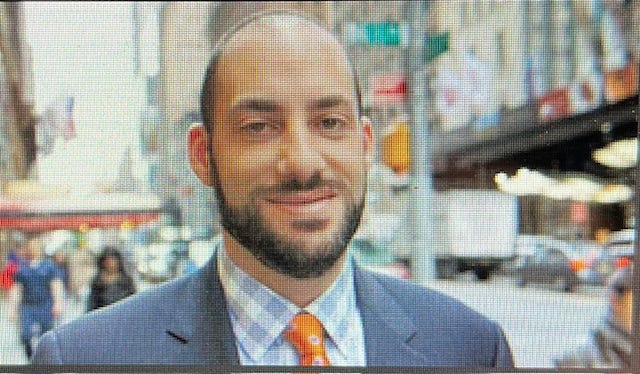
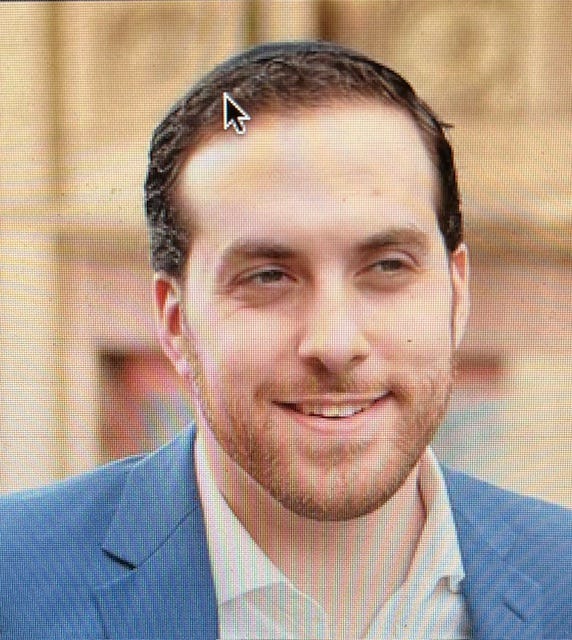


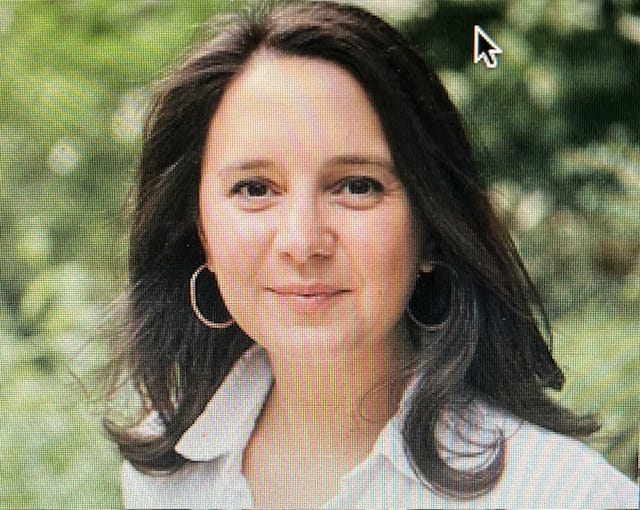
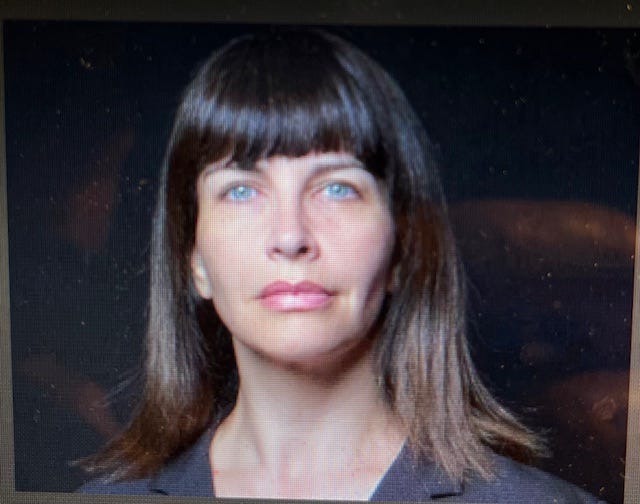
Aren't you concerned about the complete absence of a Palestinian point of view? Israel is entangled in a conflict which has been violent since 1927, when Arabs first began killing Jews. I am afraid that if you read only these commentators you will find yourself in a circular conversation with yourself.
Great List. I would add Douglas Murray